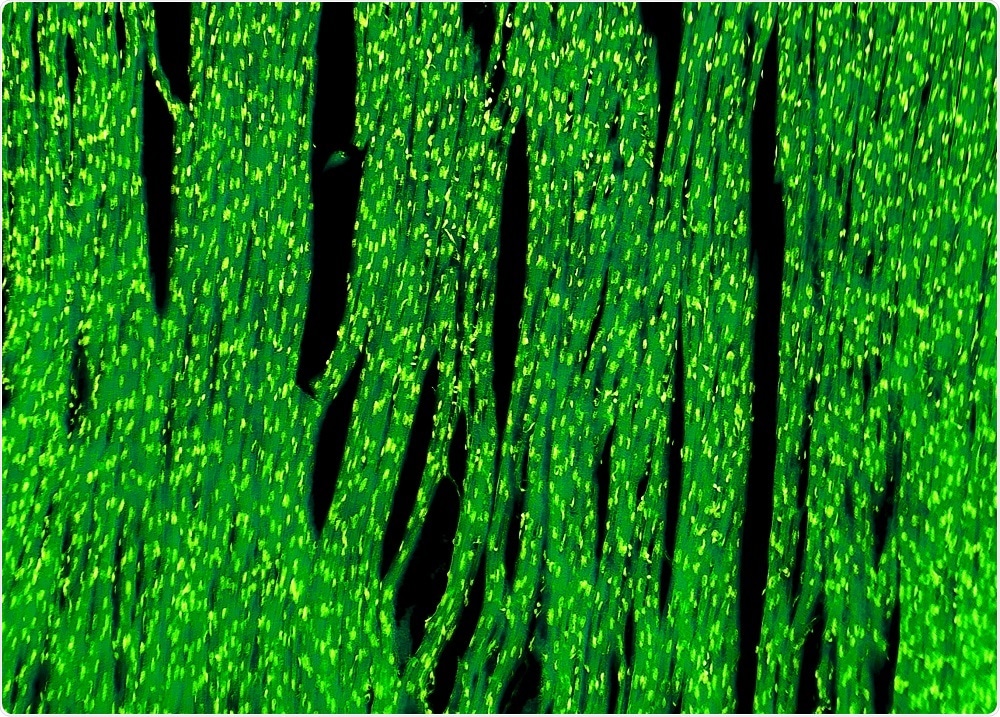A new study conducted at the University of Jyväskylä, Finland, has shown that resistance training among previously untrained men increases autophagosome content, but that this effect may be blunted by aging.

Credit: Kateryna Kon/Shutterstock.com
The autophagosome is a double-membrane secondary lysozyme involved in autophagy – the catabolic cellular route through which cytoplasmic cargo such as proteins and organelles are segregated and delivered for degradation by hydrolytic enzymes.
Pathological levels of autophagy are linked to muscle wasting, but physiological levels are required for cellular recycling.
As reported in a recent issue of the journal Acta Physiologica, Jaakko Hentilä and Academy of Finland Research Fellow Juha Hulmi, investigated indicators of autophagy and unfolded protein response (UPR) in muscle biopsies.
The UPR is an intracellular signaling pathway that maintains cellular homeostasis by transmitting information about protein folding status in the endoplasmic reticulum to the cytoplasm and nucleus.
This information triggers an adaptive response to correct any defects in proteins that are not folded correctly, as these could otherwise cause cell death (apoptosis). If the folding cannot be corrected, cells undergo apoptosis.
In the study, biopsies were taken from previously untrained young and older men after a single bout of resistance exercise and after 21 weeks of resistance training.
Hentilä and Hulmi suspected that aging may blunt some of the positive effects of resistance training induced improvement in muscle quality.
However, they found UPR induced by the accumulation of misfolded proteins in the ER was activated by a bout of unaccustomed resistance exercise, irrespective of the men’s age.
Skeletal muscle appeared to adapt to the resistance exercise similarly between the young and older men.